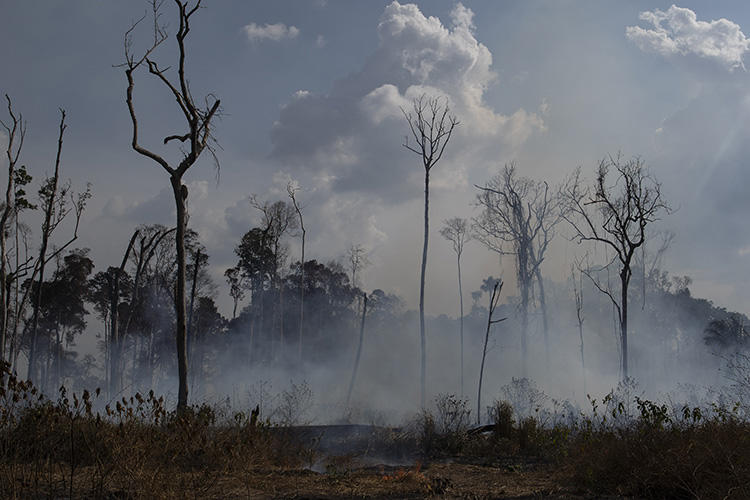Rio de Janeiro, August 30, 2019–Brazilian authorities must thoroughly investigate threats against reporter Adecio Piran, hold those responsible to account, and ensure the reporter’s safety, the Committee to Protect Journalists said today.
Piran, from the local newspaper and website Folha do Progresso in the municipality of Novo Progresso, in the northern state of Pará, told CPJ that local groups of rural producers distributed a leaflet that contained his photo and written attacks on him and his reporting through social media and WhatsApp groups. He said that on August 28, he began receiving threats via messaging apps. “After this leaflet was distributed I started to receive a number of threatening messages saying that I wasn’t welcome in the city and that the newspaper Folha do Progresso shouldn’t be circulating anymore. They tried to damage my image as a reporter,” Piran said.
According to a joint public statement from the National Journalists Federation (FENAJ) and the Pará Journalists Union, the leaflet was printed and distributed throughout the city. According to the statement and the local environmental news agency Amazonia Real, the leaflet contains a photo of Piran with stamped words such as “liar” and “scammer.” The text accuses Piran of sharing “false news” with the intention of harming the image of the city and undermining progress, and portraying the city as a “villain in burning and deforestation.” It also accuses Piran of profiting from lies and destroying the municipality. The leaflet also calls on people not to sponsor the newspaper if they love the city.
Amazonia Real reported that the threats to Piran were retaliation by local landlords and rural producers after Folha do Progresso reported this month that those groups were organizing a day of coordinated fires. Fires have been raging in the Brazilian Amazon rainforest for much of August, according to local and international reports.
“We call on Brazilian authorities to thoroughly investigate the threats received by Folha do Progresso reporter Adecio Piran and to guarantee that journalists covering the fires in the country’s Amazon region can report safely,” said CPJ Program Director Carlos Martinez de la Serna from New York. “Journalists covering crucial environmental issues often face threats of violence, and they must be protected.”
Piran told CPJ that he reported the threats to the local police, who told him that they are investigating those responsible for spreading the leaflet and sending the threatening messages, and expect to have further information next week.
In response to a request for comment sent via WhatsApp, the civil police sent a statement to CPJ saying they are investigating the case. They said they had spoken to Piran and another person, who they did not identify, and that they would take statements from others in the course of the investigation.
Felipe Gillet, a representative of the Pará Journalists Union, told CPJ that violence against environmentalists in the state of Pará is common and journalists reporting on environmental issues are often threatened.
